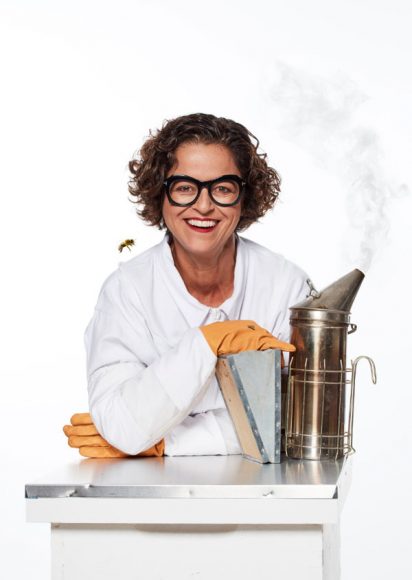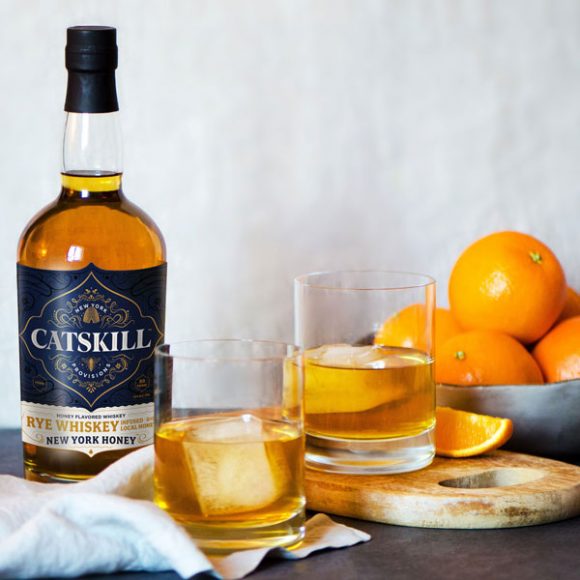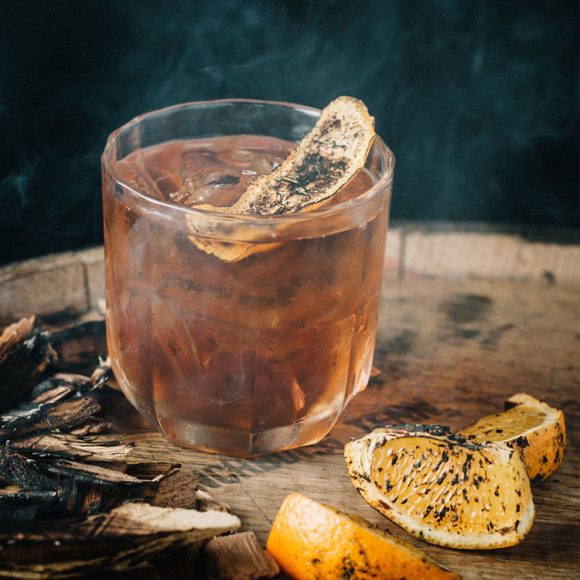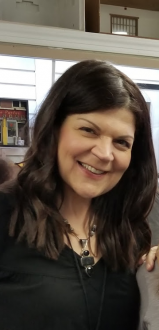Telling the stories of those who labor for the future health of the planet never gets old. Claire Marin, the founder and CEO of Catskill Provisions, is one of those fearless souls who left the corporate world behind to do just that, and she is leaving an impenetrable mark. Businesses like hers and other small-batch, craft product manufacturers are not in the game merely for financial remuneration. They share a driving passion for the land, their crops and the ecosystems they build in the process.
In Marin’s case, she formally established her business in 2010 with three lofty missions — to preserve environmental sustainability, support local economies and protect our pollinators. Speaking with her, I quickly discovered that she is not only tenacious and knowledgeable but as capable and hardworking as a queen bee. “I’ve always thought of the world as a hive. It suits my way of thinking about sharing and collaboration and makes sense to me,” she says.
And to think it all started with one beekeeping kit in 2003. Marin gifted it to her then partner and now, wife, Cathy, for purely selfish reasons, she told me. Her intention was to start an apiary at their country house in the town of Long Eddy in Sullivan County. One apiary led to another, and the raw, natural honey production that began as a hobby and for gift-giving, spawned the artisanal fine food and beverage company Catskill Provisions. Honey was the first product in its lineup, which now includes maple syrup, pancake mix, truffles, natural ketchup and even infused craft spirits.
Marin’s love of nature was heightened, she says, when her family lived on Ilhabela, literally “beautiful island,” an archipelago four miles off the coast of São Paulo in Brazil. Aged 10 when they moved there due to her father’s work, she said, “I remember that as a transformative time in my life — surrounded by the natural beauty of the island, the horses, the cows and the most incredible sunsets. It was like a dream. I was very fortunate to have lived there for four years.”
Marin said that she has reinvented herself three times professionally. Her first career was trading in oil commodities, developing relationship and sales skills that enabled her long and successful “second act” in magazine publishing. These roles provided a strong foundation upon which to start a business, but it was Marin’s determination and sense of responsibility that created one with a social and environmental conscious. Her vision, simply stated, “to share the ways of health and sustainability.”
For the past eight years, she has been educating consumers about, among other things, reducing sugar consumption. A little raw honey goes a lot further as a sweetening agent and packs a far greater nutritional punch.
In early 2010, around the time that Marin left her associate publisher’s job at More magazine, she noticed the small-batch distillery movement gaining momentum in farming communities across New York, now a nationwide phenomenon. With honey at the core of Catskill Provisions’ product line, it served as the inspiration for its NY Honey Rye Whiskey, lightly infused with the nectar of the bees, mellowing the grain’s inherent sharpness. Adding just a bit of honey makes the whiskey more palatable and eliminates the need for sugary mixers. It naturally complements herbaceous, floral and fruity components, demonstrated by the wealth of recipes for deliciously sippable cocktails offered on the company’s website.
Barreling of the whiskey started in 2010 and sales launched in 2013. A successful newcomer to the scene, the brand has already earned major industry recognition, of which Marin is proud. On the largely male-dominated turf — with some 1,700 craft distilleries in the United States — only a handful are owned and operated by women.
“Diversity makes everything better,” she said. “If we could get more women into it, we could really improve things.” Speaking of the courage it took to turn that one jar of honey into a growing and sustainable company, Marin says that she speaks on many panels for women, advising, “You have to be nimble and have a very clear idea of your ultimate goal for a business, keeping it in sight at all times.”
(She spoke at Westfair Communications Women in Food, Beverage and Hospitality event in October.)
Marin is mastering the complex art and science of spirit production thoughtfully, after conducting exhaustive research in the field. Next year’s rollouts in the spirits line include NY Pollinator Gin, infused with botanicals, and NY Pollinator Vodka, both made from non-GMO corn, a crop abundant in upstate New York. The first phase of a new distillery housed in a converted barn on the Long Eddy property will be completed this winter. Next summer, Catskill Provisions will reveal its first-ever tasting room in an old firehouse building in nearby Callicoon.
The company has a manufacturing partner for some of its products, Glen Copack, a division of Glen Industries in the Finger Lakes region. This nonprofit is run by The Arc of Schuyler — one of 52 ARC chapters around the state — which provides job training and employment opportunities for those with intellectual and developmental disabilities.
Having met her goal of injecting revenue into the small communities of the Catskills in Sullivan and Delaware counties, Marin is expanding into nearby Madison County. A range of 1 to 3 percent of sales is donated to organizations working to save our nation’s pollinators. Formerly underutilized workers and farmers are benefiting from her expansions.
When beekeeping came into her life, Marin, already fascinated with the myriad variety of pollinators, was keenly aware of their decreasing populations around the world.
“We’ve seen a pullback (in the decline),” she reports happily, “particularly in Europe where regulations went into effect banning nicotine-based pesticides, resulting in a significant decrease in bee deaths. From a rate of 47 percent, it’s down to 17 percent.” The rate of attrition in a hive should be closer to 10 percent, numbers not seen for decades, particularly in the U.S.
Without the pollinators, our food chain is drastically compromised. According to the website for nonprofit Greenpeace, honeybees perform 80 percent of all pollination worldwide and are responsible for roughly one of every three bites of food we take. On her 32 acres in Long Eddy and throughout the farmland region of the state, Marin would like to see more development of wildflowers to benefit all the pollinators. To that end, she has also started to plant milkweed — a food source for monarch butterflies — the syrup from which will be used for the forthcoming Wanderer Gin.
Organizations that benefit from the sales of Catskill Provisions’ products such as the Sierra Club, Friends of the Earth and the Natural Resources Defense council (NRDC), among others, are lobbying for more stringent regulations on pesticides and promoting the leading preservation method at work today — restoring ecological farming that will improve pollination. With what she describes as a “view from 100 feet,” Marin is more than doing her part. Recently, she started a collaboration with a neighboring farmer and has just planted seven acres of rye, a hearty cover crop that helps mitigate field erosion and grows throughout the winter with harvest in early spring.
In parting, Marin suggested one last, but highly effective and effortless practice worth adopting for those with a lawn or yard that will help our pollinators. “Allow your dandelions, which most find to be a nuisance,” she says, “to stay on your property for just three to four days after they bloom before removing them, as they are the first ‘flower’ on which pollinators feed in the early days of spring.” This small action goes a long way in helping your local bees have a happy and productive season. No wonder, then, that the motto adopted by Catskill Provisions is “happy bees make better honey.”
For more, visit catskillprovisions.com.







